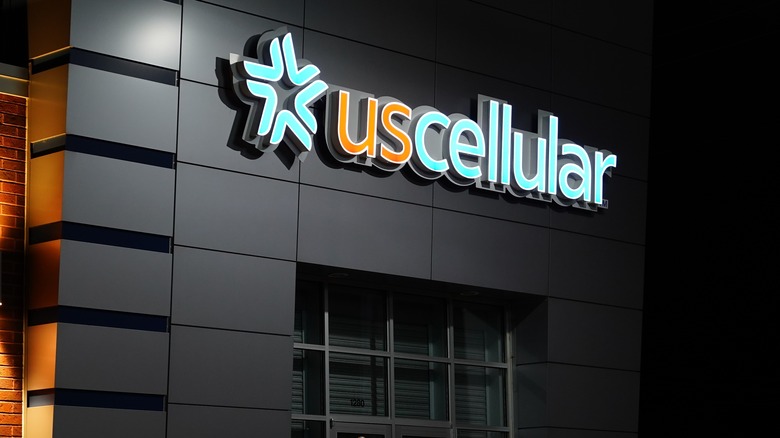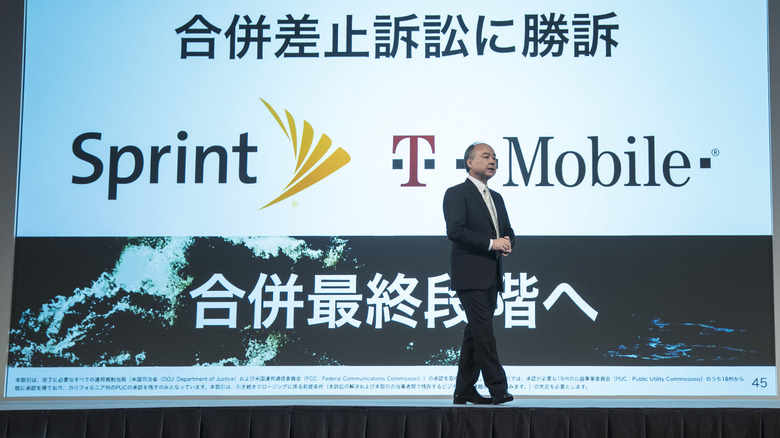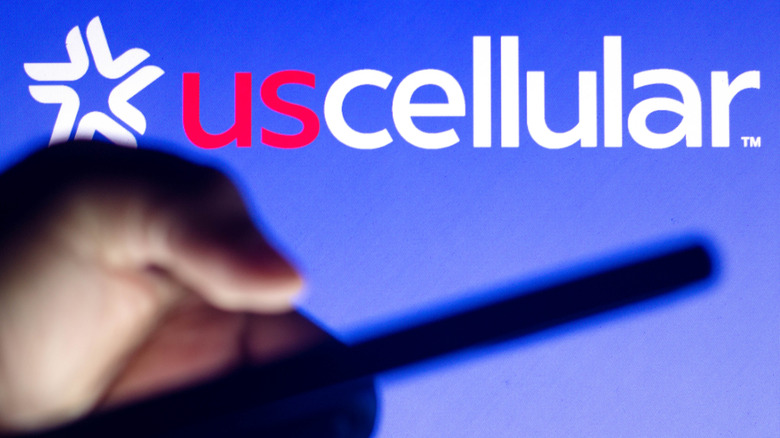Why T-Mobile Buying US Cellular Could Be A Disaster For Budget Cellphone Plans
On Tuesday, a story that first started developing a few weeks ago came to fruition when T-Mobile announced in a press release that it "has agreed to acquire substantially all of UScellular's wireless operations" for $4.2 billion, "up to $2.0 billion" of which comes from assuming the latter's debts.
For the uninitiated, US Cellular is a heavily regionalized wireless service carrier that operates its own network independent of those belonging to the "big three" of Verizon, T-Mobile, and AT&T. If you don't live in a region where its service is concentrated, then you may not have even heard of it before. However, if you do live someplace where US Cellular coverage is prominent, then it might offer superior service to that of its competitors. But that's all changing.
T-Mobile describes the acquisition as including US Cellular's subscriber base and its retail stores, as well as "certain specified spectrum assets." In practice, the press release says that this will improve service for US Cellular customers, as they'll get the same service they've always had in their home area — if not better — but also have it supported by full-scale T-Mobile coverage in non-US Cellular areas instead of relying on roaming service.
There are some clear potential downsides to the deal, though, particularly if we use past T-Mobile acquisitions as a reference point. A recent report from Rewheel Research argues that T-Mobile's 2020 merger with/acquisition of Sprint eliminated substantive price competition among American carriers, for starters. T-Mobile also hasn't lived up to its promises of not cutting jobs in the face of the merger, either. So let's take a look at how past deals have gone and how they could inform the future with an acquired US Cellular.
Other mergers and acquisitions T-Mobile was involved in before the Sprint deal
T-Mobile as we know it in the United States goes back to 2002, when Germany's Deutsche Telekom acquired VoiceStream in 2002, and brought the existing T-Mobile brand stateside. At the time, the company claimed that it would be the first carrier to offer service in both the U.S. and Europe, making it seamless for customers to bring their phones abroad. Five years later, at a time when Verizon and AT&T were making similar moves, T-Mobile bought SunCom Wireless for $2.4 billion in cash and debt, strengthening its presence in the southeast. At the time, RCR Wireless News noted that consolidation was becoming the norm in the mobile space, with regional carriers being gobbled up by national companies.
The moment that truly reshaped T-Mobile into "the Un-carrier" of today came in 2011, when AT&T attempted to acquire it from Deutche Telekom in a planned merger. Thanks to regulators moving to block the deal, it didn't go anywhere. Instead, AT&T had to pay T-Mobile billions in breakup fees while giving the company another $1 billion worth of wireless spectrum rights.
In the aftermath, T-Mobile seemingly invested the windfall in building the company up, and in March 2013, under the leadership of new CEO John Legere, it dramatically altered its marketing, branding itself "the Un-carrier." Pricing and promotions got a lot more aggressive, as did attacks on the competition, all while Legere became the foul-mouthed face of the brand. In the middle of all this, T-Mobile acquired fifth-place carrier MetroPCS in a 2012 reverse merger, further bolstering its network.
T-Mobile gets into heavy acquisition mode with purchases of Sprint, Ka'ena
Whatever you can say for the earlier successful acquisitions by T-Mobile, they usually involved much smaller carriers, and AT&T's deal to buy the company got blocked from completion. But by 2018, T-Mobile was a lot stronger and more brazen, and in April of that year, they announced an all-stock deal to acquire Sprint — combining the third and fourth biggest carriers into a theoretical new number two.
In the announcement, "The New T-Mobile" pledged that the Sprint merger would create thousands of jobs while improving service in underserved rural communities. The FCC would approve the deal in 2019 despite having not reviewed the prepared deal impact reports, which was not exactly a good look after T-Mobile suddenly spent $195,000 at properties owned by then-President of the United States Donald Trump and hired Trump associate Corey Lewandowski.
The job pledge didn't hold up under scrutiny, with GeekWire noting in April 2023 that the merged company had 7,000 to 9,000 less employees than Sprint and T-Mobile had combined at the time of the merger. When GeekWire reporter Todd Bishop reached out for comment, T-Mobile had a curious defense, one so messy that it required clarifying. T-Mobile alleged that the pre-merger promises were based on a comparison to a hypothetical future without a merger, not one to where the two companies' head counts stood beforehand.
In May 2024, a study from Rewheel Research concluded that the promises of lower prices and functionally more competition were also mirages, saying that the deal "made the U.S. one of the most expensive markets in the world" for mobile service. Also in May 2024, T-Mobile closed its $1.35 billion acquisition of a less direct competitor in the Ka'ena Corporation, which resells prepaid service as Mint Mobile and Ultra Mobile.
What could happen with the US Cellular deal
The direct repercussions of the Sprint deal aren't the only reasons to be far from bullish about T-Mobile acquiring the bulk of US Cellular. In between the initial reports of the impending deal, and T-Mobile's May 28 confirmation of it, "the Un-carrier" raised the rates for customers on its legacy plans — those no longer offered to new customers — without a public announcement. Internally, the company is citing inflation as responsible for the change, according to The Mobile Report. Company brass seemingly knew how badly this would be received, with The Mobile Report noting a few days earlier that stores were being ordered to beef up staffing to deal with angry customers.
The clearest benefit for US Cellular customers is that they will no longer have to rely on inferior roaming coverage when traveling outside of coverage areas. That's not nothing: If you're currently best served by US Cellular's network, you'll soon get the benefits of a national carrier as well. Bringing price into the equation, T-Mobile claimed in the acquisition announcement that US Cellular customers can stay on their existing plans if they desire. Given T-Mobile's recent legacy plan rate hikes and US Cellular's website only promising price guarantees through the end of 2024 (T-Mobile expects the deal to close in mid-2025), it's reasonable to be concerned that this legacy plan carry-over isn't here for the long haul.
In the meantime, T-Mobile's messaging is that the costs saved by the pooling of the companies "synergies" will be reinvested in the company, with a priority on "enhancing consumer choice, quality and competition in the wireless industry." For now, though? It's hard to take them at face value.



